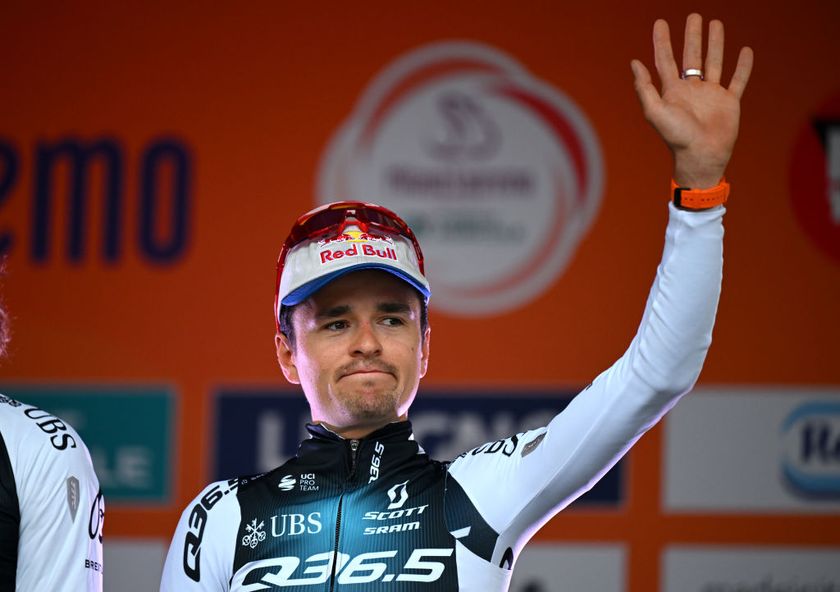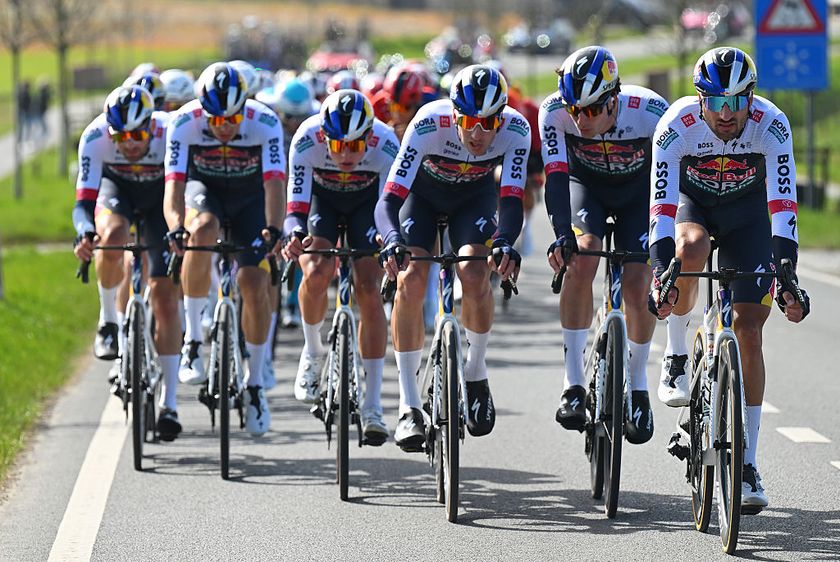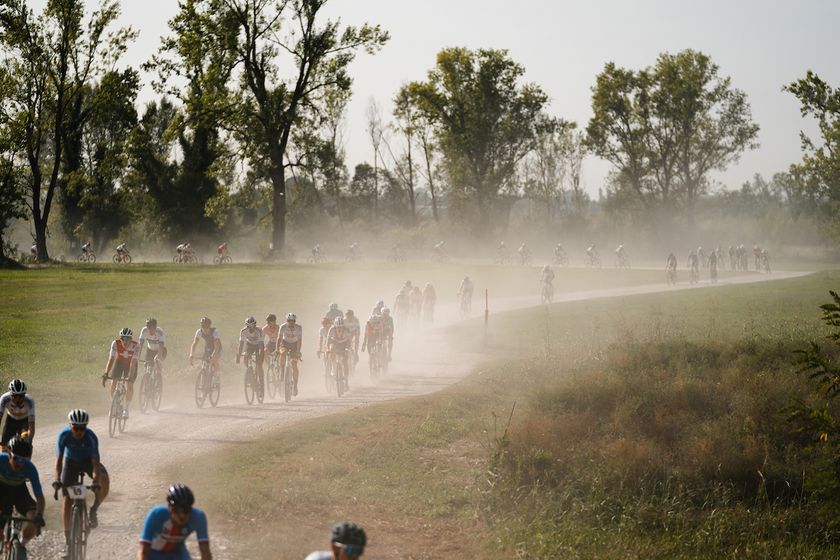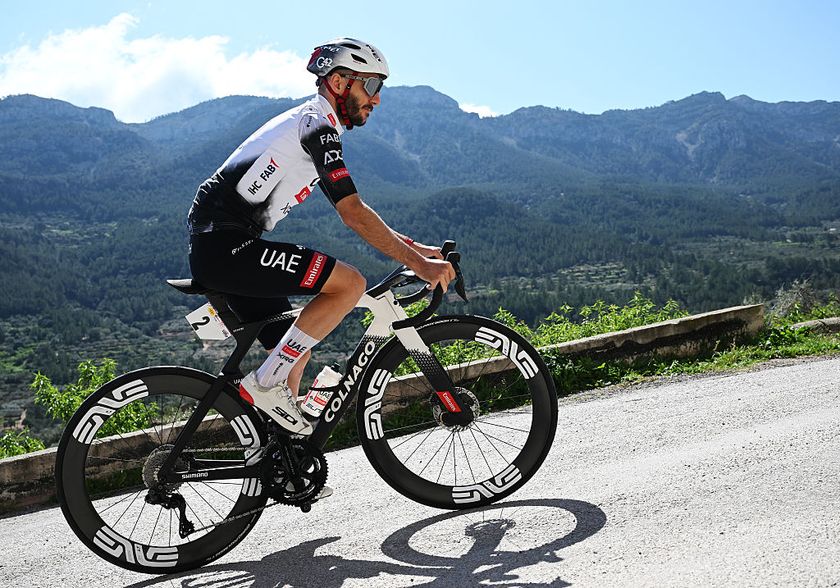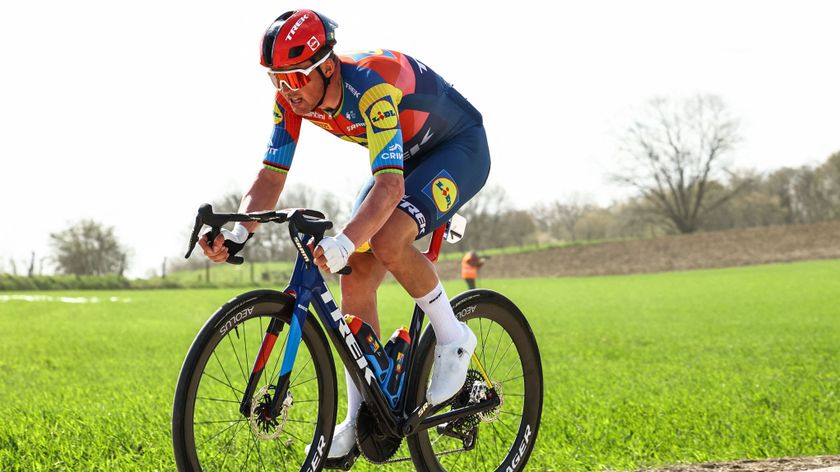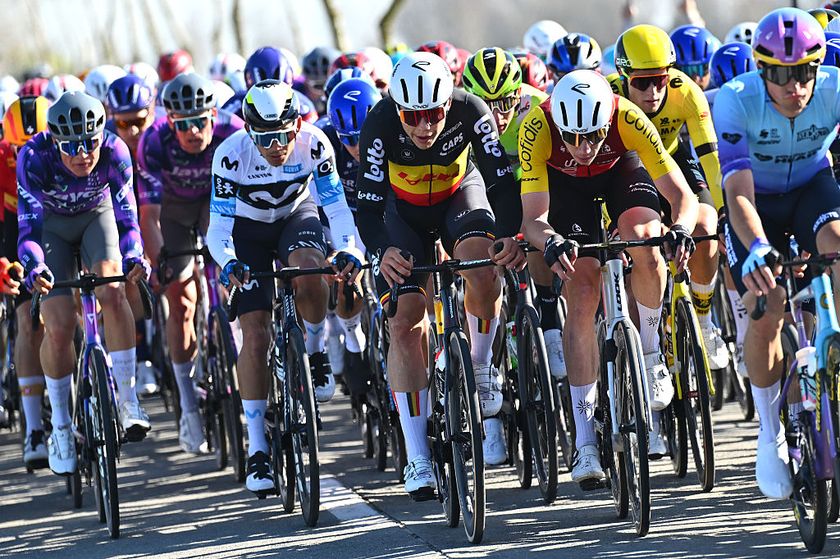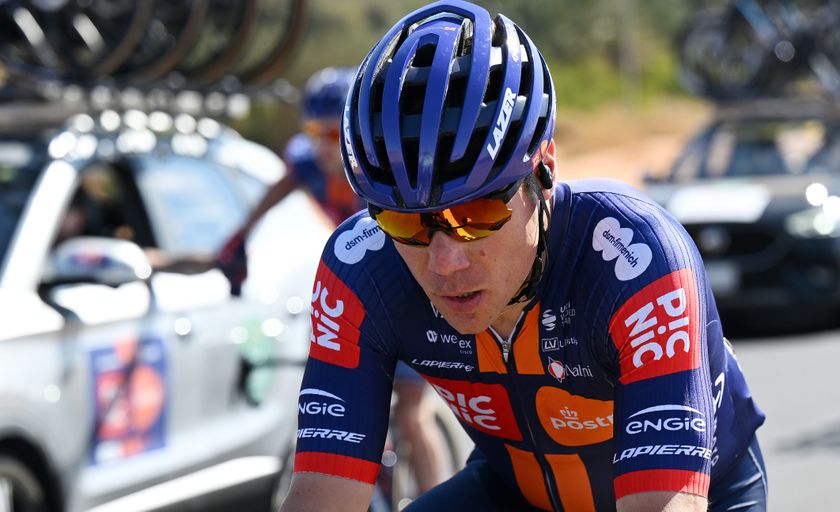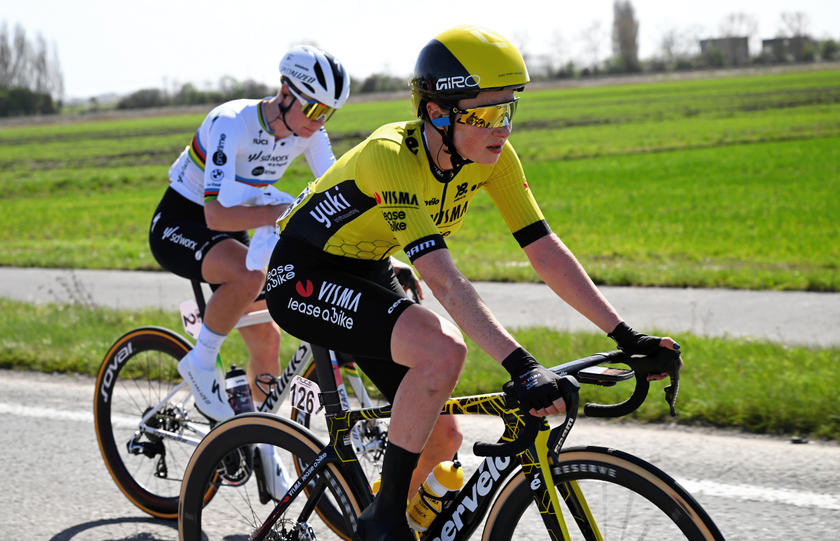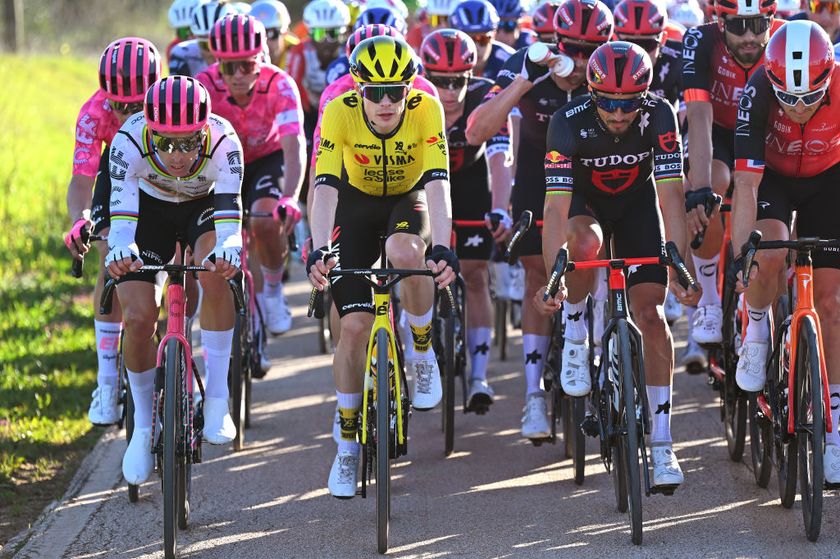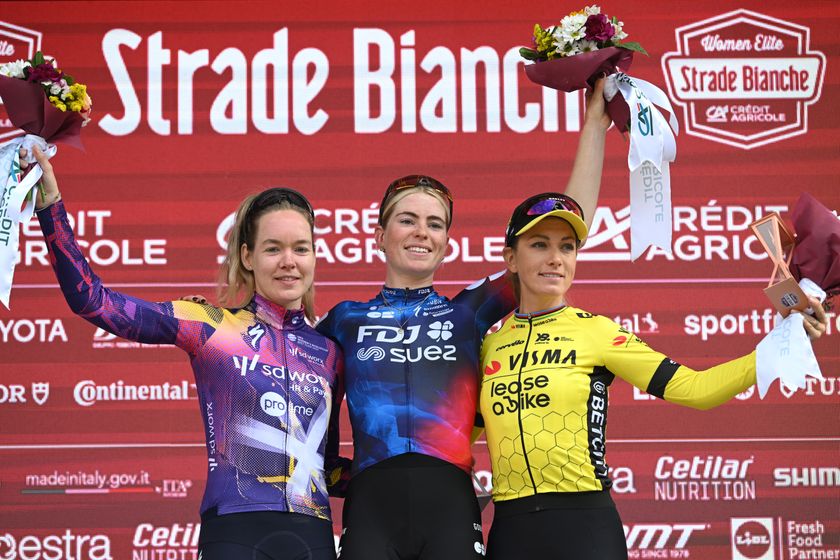Giro d'Italia: 10 conclusions from the opening week
Evans and Nibali on the up as Hesjedal and Wiggins lose ground









Can Wiggins and Sky change tack?
This wasn’t in the script of “Project Giro”. The pre-race prognostics all suggested that Bradley Wiggins would be safely ensconced in the maglia rosa after the Saltara time trial, with his Sky team primed to defend a healthy overall lead through the final two weeks of the race.
Instead, after struggling on the technical finales of week one – particularly, but not solely, on rain-soaked descents – and after failing to open the kind of time gaps he would have liked in the time trial, Wiggins unexpectedly finds himself on the back foot, with 1:16 to make up on Vincenzo Nibali (Astana).
In Florence on Sunday, Sky manager Dave Brailsford vowed that Sky would be aggressive over the next two weeks, but while Sergio Henao (sixth at 2:11) Rigoberto Uran (9th at 2:49) are both men with a naturally attacking streak, Wiggins has operated almost exclusively on the defensive since his dramatic metamorphosis into a stage race rider in recent years.
Can Wiggins really drop Nibali (not to mention Robert Gesink, Cadel Evans et al) in the mountains? Or, perhaps more to the point, given his stilted descending so far, is Wiggins destined to lose even more time in the array of technical descents that are still to come in this Giro? And even if the status quo holds until the Polsa mountain time trial, can Wiggins put significant time into an on-form Nibali, who performed so well at Saltara?
Wiggins’ and Sky’s success in recent years has come largely from controlling races and then exerting their power in controlled environments such as time trials and evenly-graded summit finishes. On the narrow, twisting roads and sharp inclines of Italy, and with the pre-prepared script in shreds, Wiggins and Sky find themselves in decidedly unfamiliar territory.
Evans bounces back
Get The Leadout Newsletter
The latest race content, interviews, features, reviews and expert buying guides, direct to your inbox!
Heading into the Giro, many a pundit and fan saw Evans as an outsider for the podium and complete long shot for the win. After a disappointing 2012 and a lacklustre start this season, and after a late alteration in his race schedule it appeared as though BMC were clearing a path for Tejay van Garderen at the Tour while also draining out their use of Evans before a possible retirement.
However throughout this year’s Giro, Evans has been at the front when it’s mattered and if it wasn’t for the time lost in the opening team event he’d be one second off the lead and the maglia rosa.
Like Evans' Tour win in 2011 it’s been about consistency. On stage 3 to Marina di Ascea, he resisted the attacks from Hesjedal but remained in contact to snatch vital bonus seconds, before following that up with 6th place finishes on stages 4 and 7.
Backing those performances with seventh in the time trial confirmed that Evans is on song, but let's not get ahead of ourselves just yet. Two questions arise after the opening week: Can Evans show this level in the mountains and if so can he crack Nibali? Whatever the answers, they’re most likely different to the ones most people gave in Naples.
Double-edged scenario for Nibali
One real attack, one strong time trial and a 1:16 lead over Bradley Wiggins. The opening week of the Giro could scarcely have gone much better for Vincenzo Nibali. Indeed, even when he crashed – twice – on the road to Pescara, Nibali not only picked himself up unscathed but he ended the day by gaining over a minute on Wiggins.
The end result is that Nibali finds himself in the maglia rosa far sooner than he could ever have anticipated and Astana are left with a tactical conundrum. They entered the race expecting to wage guerrilla warfare on Wiggins and Sky in the mountains, but instead they are in the positioning of defending Nibali’s lead and shouldering the burden of controlling the race.
That responsibility is an onerous one for a team. On Sunday, Astana rode at the front early on and then upped the pace in a bid to distance Wiggins when he was dropped on the descent of the Vallombrosa, but by the finale in Florence, Nibali had only Tanel Kangert for company in the lead group. He will be hoping for more lasting support in the high mountains.
Nibali himself must now tread the fine line between defending what he has and seizing opportunities to extend his advantage. A natural attacker, the Sicilian must decide when to curb his instincts and when to indulge them. “If there’s a chance to gain seconds in the in the stages to come ahead then I’ll go for it, but I’ll also defend myself against my rivals,” he said.
Hesjedal on the ropes
What a difference a week can make. Especially at the Giro d'Italia.
Last Monday 2012 winner Ryder Hesjedal (Garmin-Sharp) went on the attack on the hilly stage to Marina di Ascea and reminded everyone that this year's Giro d'Italia would be far more complex and far more intriguing than a head to head battle between Wiggins and Nibali.
Hesjedal then looked good in the rain in the Abruzzo hills and descents but then suddenly he was the one on the ropes after under performing in the Saturday's Saltara time trial and then struggling on the road to Florence.
The laid back Canadian is now eleventh overall, a significant 3:11 behind Nibali. Every other overall contender has at least a minute's advantage on him.
Hesjedal blamed his problems on a lack of power in his legs after the efforts of the time trial, insisting to Cyclingnews it was a bad moment and not even a bad day.
Some of the Italian media have already written off Hesjedal's chance of a second consecutive Giro d'Italia victory. But there is no Plan B for Garmin-Sharp at the Giro d'Italia. The team is here to back Hesjedal all the way to Brescia.
The remaining 12 stages are virtually all uphill from now on and Hesjedal's race looks steeper than that of his rivals. He will have to go on the attack to pull back time.
He raced intelligently last year to win the Giro d'Italia. This year will need intelligence, daring and aggression.
Dowsett in dreamland
Towards the tailend of last season, it was becoming increasingly likely that Alex Dowsett would leave Team Sky. Injuries had been a factor but the growing sense of frustration from the Englishman was evident. Two years had passed since his debut and the time trial talent was feeding of scraps in the racing calendar and when Sky began to stall over a new contract Dowsett decided to look elsewhere.
Movistar’s ears pricked up when Dowsett’s agent began to circulate the rider’s CV and within a few weeks, despite some initial interest from other WorldTour teams, a contract had been signed.
The move to an all-Spanish team was certainly a risk, only Jeremy Hunt has walked that path and that was back in the late 90s. But Dowsett, hungry for the bigger races, packed his time trial bike and on Saturday came away with the biggest win of his career in what is his first Grand Tour.
Point proven for Dowsett but for the rest of the British riders coming through, it’s another example of how British talent can flourish outside of the Team Sky blueprint.
It never rains but it pours
The weather and especially the rain, has been a huge factor in the results of the first week of the Giro d'Italia and 'il meteo' is set to play an even bigger role in the mountain stages.
While the heat of July makes hydration a key factor at the Tour de France, the rain in Italy in May can be cold, cruel and unforgiving. The slick and slippy descent of Italy have exposed a weakness in Wiggins' armoury which his rivals, especially Nibali, have quickly taken advantage of.
The bad news for Wiggins is that the weather forecast for the week ahead seems to be in Nibali's favour. The stages in the Friuli mountain should be raced in the dry, but rain and thunderstorms are forecast for Saturday and Sunday's stages to Bardonecchia and the Col du Galibier.
Both stages end with long climbs but both include long descents, too.
The Cavendish conundrum
Two stages wins finished in contrasting style for the former world champion. First came the Naples kermesse in which Cavendish was left isolated once again by his teammates.
The two sprints leave Patrick Lefevere with a difficult choice to make. Should he stick with his current crop of potential lead-out men or dip into Bakala’s funds and spend on Mark Renshaw.
Michele Scarponi had been dismissed as a Giro d'Italia contender this year due to his winter suspension for working with Dr. Ferrari, his spat (and subsequent pay cut) with the Lampre-Merida team and a general lack of results in the early season.
But like an old plant that some how manages flowers every spring, the haggard-looking 33 year-old has come good just in time for the Giro d'Italia.
He lost time in the team time trial and a crash and a bike change cost him dear on the descent to Marina di Ascea. Yet he was brave in the rain and surprisingly strong in the time trial, leaving him fifth overall, 1:24 behind Nibali and just eight second behind Wiggins.
He hasn’t finished outside the top five in the last three editions of the Corsa Rosa and is the official winner for 2010 after Alberto Contador's disqualification for doping.
Don’t bet against him finishing on the final podium in Brescia.
Katusha kick back
Back in January Katusha were in team in disarray. At the Tour de San Luis there was talk of Rodriguez joining Lampre, with Merida the linchpins in the transfer, as the team struggled for a WorldTour licence.
It took a decision from CAS to finally settle the team’s legitimacy and since then the Russian squad has – results wise – justified its selection in the Giro. Two stage wins and a spell in pink courtesy of Luca Paolini and all done without the squad’s talisman Joaquim Rodriguez.
The team has 12 wins to date in 2012, as many as Astana, BMC and AG2R put together, and although they lack a GC threat there’s every chance that they’ll add to their haul of stages by the time the race reaches Brescia.
Gesink in contention in third
Any of the GC contenders would have bitten off your hand if offered third overall and 1:15 down on the maglia rosa after a week of racing but perhaps none more so than Robert Gesink.
The Dutch climber has a reputation – at times unfair – for crashing in major tours but while Wiggins appeared hesitant in the wet and Hesjedal cracked twice, Gesink has remained in contention. A solid performance in the team time trial laid the foundations for an opening week that has seen Blanco surround and protect their leader whenever the rain appears and the road surface teeters towards sketchy.
Conceding just 1:12 to Wiggins and 59 seconds to Nibali in the time trial was a major success though and Gesink holds third through merit. Like Evans, a truer test of his form and resolve will be attained after this finish to Altopiano del Monstasio.
